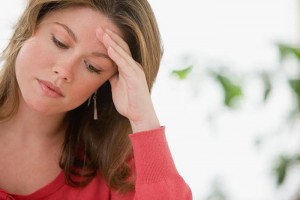 If I were to ask you what the most-often prescribed drug is in America, what would you say? Would you guess statins to lower cholesterol? Or maybe drugs that control blood pressure?
If I were to ask you what the most-often prescribed drug is in America, what would you say? Would you guess statins to lower cholesterol? Or maybe drugs that control blood pressure?
You’d be wrong. Antidepressant drugs actually top the list.
Depression is a prevalent condition. Government agencies estimate that it affects about 10 percent of the population. But that doesn’t mean that a prescription antidepressant should be used to treat everyone struggling with depression. These drugs can cause weight gain, a loss of sex drive, and fatigue. For some patients they can actually cause suicidal thoughts. Some of them, like Paxil, can create tremendous problems when you try to discontinue their use.
For people suffering severe, clinical depression a drug may be the best option. For most people living with mild or moderate levels of depression, there are much safer alternatives to treat it. The alternatives often help address the underlying causes of depression while drugs just mask its symptoms.
Understanding Depression
There are many different reasons that depression happens. In many cases, depression is closely tied to a physical condition. Thyroid disorders, hormone imbalances, and obesity can lead to depression. So can anemia, insomnia, and chronic fatigue syndrome. Lyme disease and hepatitis are less common, but they can cause depression, too.
When you are depressed, there are a number of symptoms that you may live with. Among them are persistent sadness, a feeling of hopelessness, irritability, and a loss of confidence. You might find that your eating habits change. You may feel like eating more or less than usual. The same is true of sleep patterns. Depression can cause physical symptoms, too. You may feel fatigued and be plagued with headaches or body aches. When you’re depressed, it’s hard to do anything—it’s like all your motivation is missing.
That’s why it is so important to get help. Depression can affect every aspect of your life from your physical health to your relationships to your career to your personal interests.
When it comes to help, there are many options. Prescription treatments should be used as a last resort after you have tried safer alternatives first.
End Depression Naturally!
One of the very best treatments for depression is exercise. In one study researchers found that patients struggling with depression who exercised often over eight weeks significantly reduced their symptoms.[i] In another study, researchers found that 30 minutes of aerobic exercise at least three times a week is as effective as prescription drugs in treating moderate depression.[ii]
Diet can also affect depression. Blood sugar imbalances from eating foods high in starch (think potatoes and refined grains) and high in sweeteners like high fructose corn syrup can trigger mood swings.
An imbalance in fatty acids can also cause depression. Significant research has been done linking low intake of omega 3 fatty acids with mental disorders including depression. In an analysis of double-blind, placebo-controlled studies, researchers found a great deal of evidence to support omega-3 as a treatment for depression.[iii] More research needs to be done, but omega-3s provide a number of health benefits and no side effects. If you are depressed, omega-3s might help—there’s no reason not to give them a try.
When it comes to depression, simply talking to a professional counselor or therapist can help a lot. Research finds that talk therapy does not work as quickly as drug therapy, but it is just as effective in the long run… and much safer.[iv] Talk therapy is also more likely to help you address the root causes of your depression, something that drugs just can’t do.
When it comes to treating depression, there are many options that are safe and free of side effects. It’s a good idea to give these safe, natural treatments a chance to work before you turn to dangerous drugs.
Stay well,
Mark Rosenberg, M.D.
[i] Legrand F, Heuze JP, “Antidepressant effects associated with different exercise conditions in participants with depression: a pilot study,” J Sport Exerc Psychol 2007; 29(3): 348-64
[ii] “Exercise Matches Drugs in Treating Depression,” Daily News Control. 1/25/2005
[iii] Lin PY, Su KP, “A meta-analytic review of double-blind, placebo-controlled trials of antidepressant efficacy of omega-3 fatty acids,” J Clin Psychiatry 2007; 68(7): 1056-61
[iv] “Depression: Drug Therapy vs. Talk Therapy,” CBS News. 9/8/2004
Photo Credit: tappmedical.com
